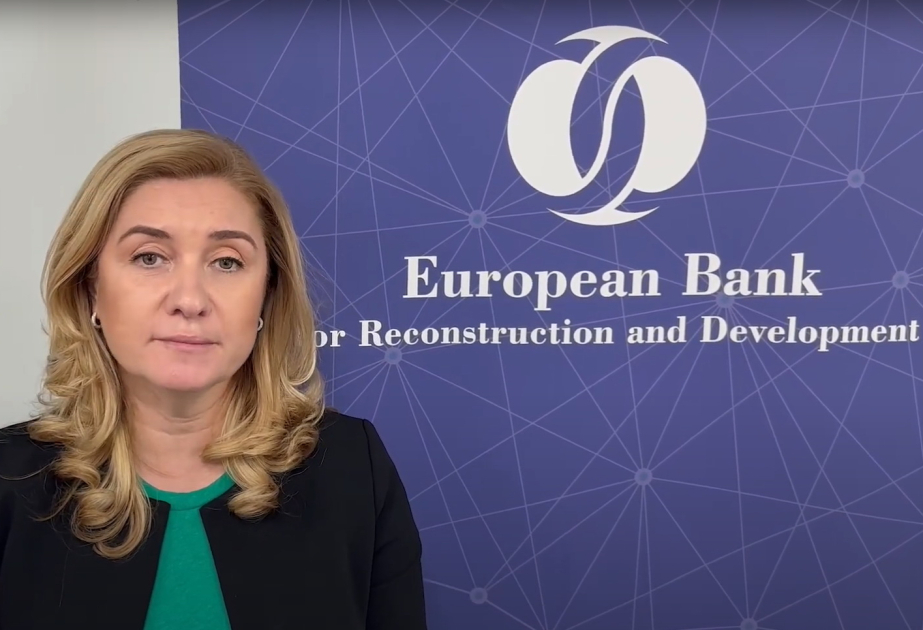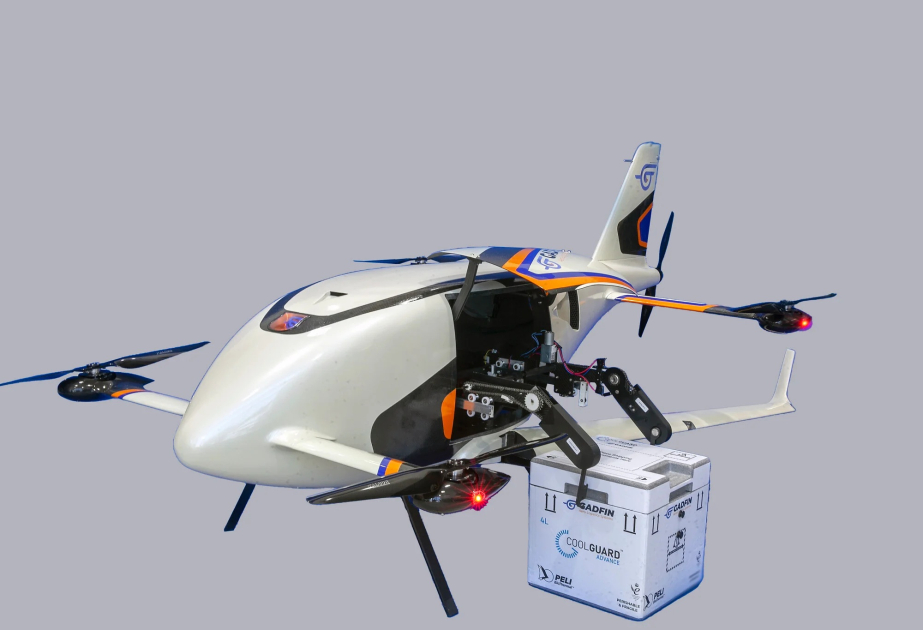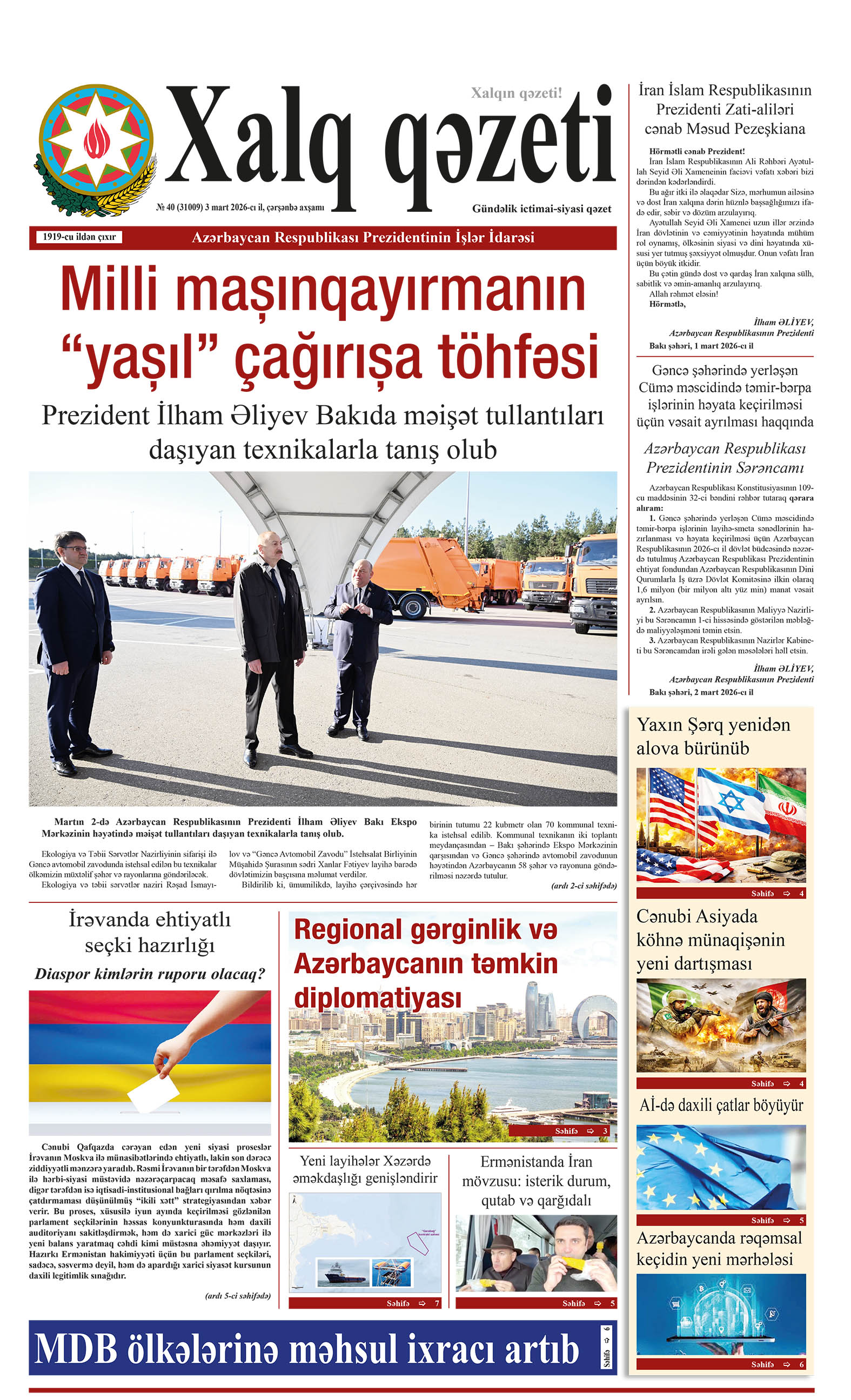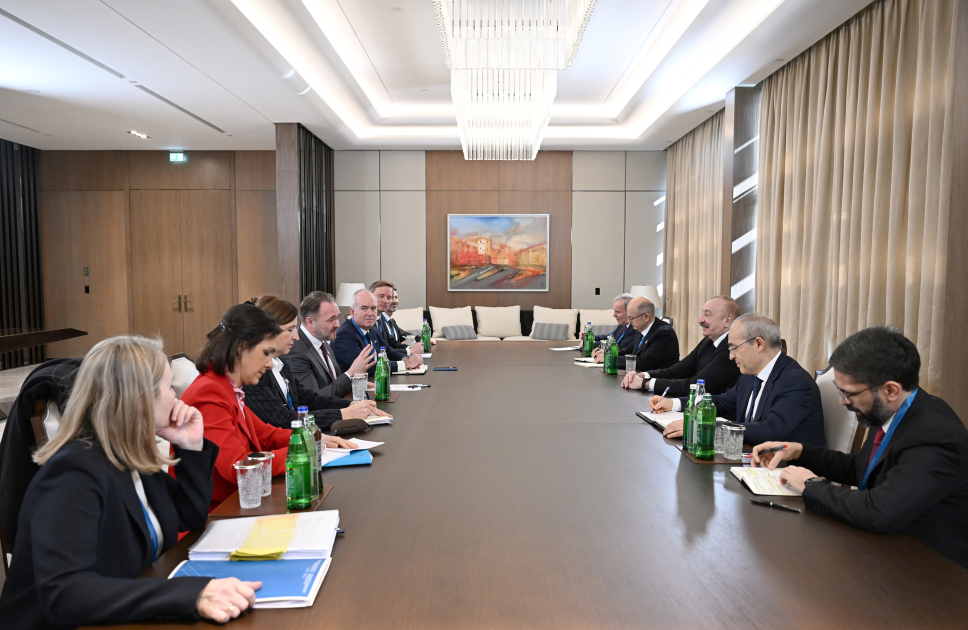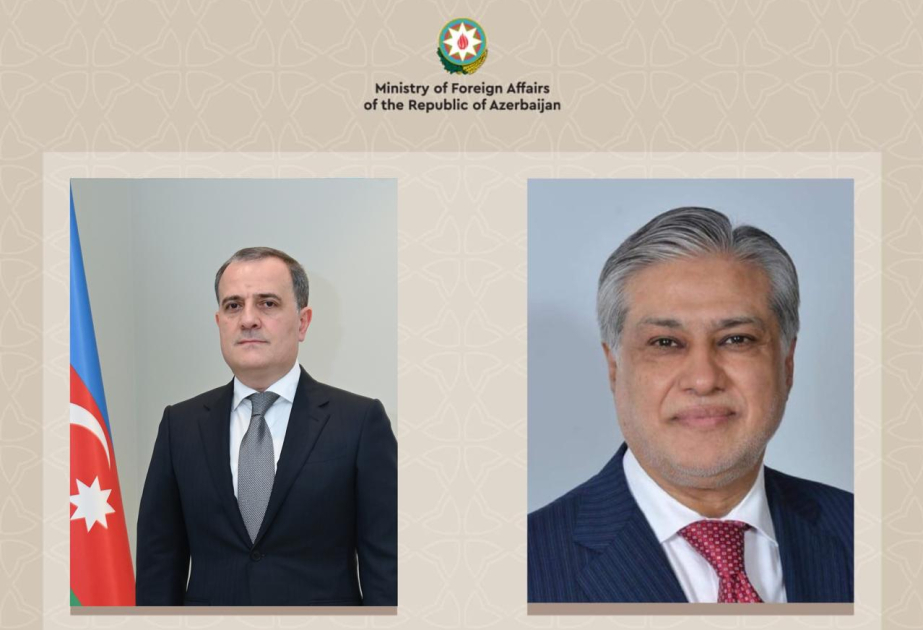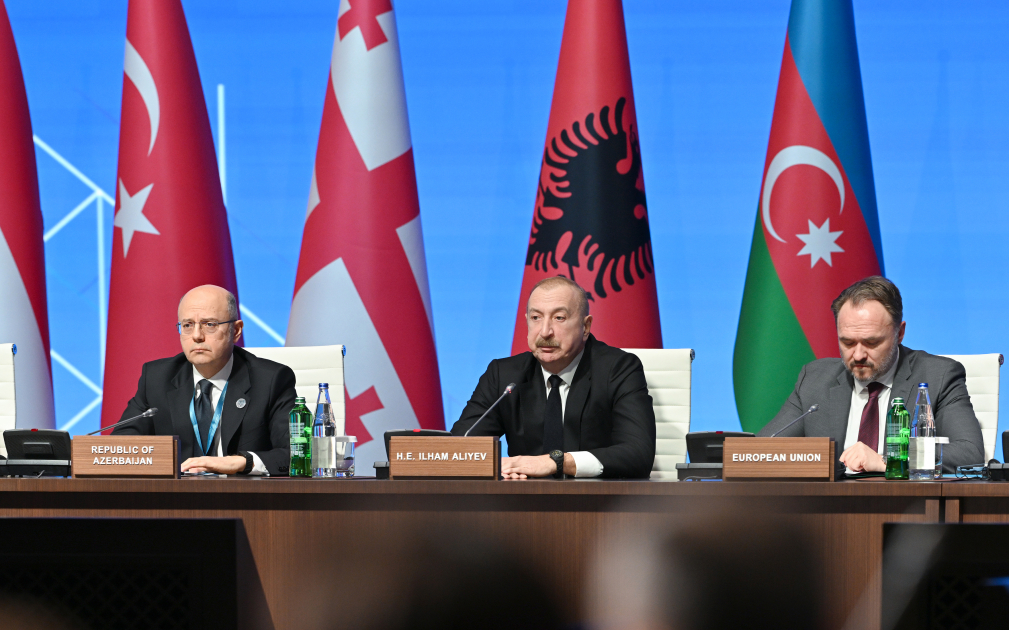The European Bank for Reconstruction and Development (EBRD) has been active in Azerbaijan for over 30 years, serving as a key partner in significant, strategic, and long-term projects. Despite this extensive history, the bank remains committed to exploring future cooperation in the country’s priority economic sectors.
AZERTAC offers an exclusive interview with Nataly Mouravidze, Head of the EBRD Baku Resident Office, discussing pressing topics.
-Please tell us about the EBRD’s key priorities and highlights of the Bank’s cooperation with Azerbaijan throughout past ten years?
-First, let me congratulate Azerbaijan on its successful organisation of COP29 and delivering an agreement on tripling the New Collective Quantified Goal from US$ 100 to US$ 300 billion a year by 2035. I spoke with veterans of COP who have attended over a dozen of these conferences, and they were all united in their praise of seamless organisation. The facilitation from Mr Babayev’s team should also be commended.
With regards to our work in Azerbaijan, we’re the largest institutional investor here and we’ve been longstanding partners of this country for over three decades now. To date, we’ve invested over €4 billion in 194 projects and throughout these years, we’ve been supporting the country’s economic diversification through investment, technical cooperation, and policy reform.
On investment side, this year alone, we financed AccessBank, Bank Respublika and International Bank of Azerbaijan (ABB) for on-lending to local businesses and supporting the trade finance. We also contributed to enhancing Azerbaijan’s transport capacity by signing the US$ 42 million loan agreement with Azerbaijan Caspian Shipping Company (ASCO).
During the past three years, our cumulative investments in renewable energy surpassed 1.2 gigawatts which is around half of existing renewable energy capacity in Azerbaijan. In particular, the biggest achievement was this year’s signing of the 760 megawatts of green energy in Bilasuvar and Neftchala – the largest solar energy facility in the Caucasus.
- Could you highlight some of the most successful examples of the achievements the bank has made in cooperation with Azerbaijan?
- But to understand the current high levels of investment and flourishing Azerbaijan-EBRD partnership, one should look at consistent policy dialogue that we’ve been engaged with authorities throughout past years. These involve countless hours of collaboration between the authorities, the private sector and our teams based in Baku and across our other countries, and I’d like to give you some great instances of our common achievements the benefits of which we are reaping right now.
One good example is our work with Azerbaijan’s Ministry of Energy on completing a grid strengthening study that now puts Azerbaijan in a position to prepare its power grid for green transition. Another milestone for us was the preparation of study together with the authorities to assess the potential for a low-carbon hydrogen economy and develop the national hydrogen strategy of Azerbaijan. We’ve also been working with the authorities through our trademark Renewable Energy Programme to help Azerbaijan roll out its first renewables auctions. At COP29 and with the EBRD support, the country completed its first auction with resounding success, leading to the entry of a new player in Azerbaijan’s energy market and the planned commissioning of a new 100 MW solar plant in Garadagh.
-What’s the role of Azerbaijan in the EBRD’s strategic initiatives in the Caucasus and Central Asia?
-The rising demand for the middle corridor transport route is creating new trade opportunities for the Caucasus and for Central Asia and we are actively supporting our clients, private or sovereign, involved in linking Central Asia to the Caucasus. Be it a storage facility near Baku, port infrastructure in Georgia, or railways in Kazakhstan.
Being a demand driven institution, the EBRD is keen to support more projects along the Middle Corridor, and in Azerbaijan, as the country is one of the most important links on this strategic transport route.
Further to boosting the country’s transport potential, we are closely monitoring new regional developments in green energy transport. We saw that the leadership of Azerbaijan, Kazakhstan, and Uzbekistan signed a Green Corridor agreement. Similar efforts are ongoing among the Black Sea basin countries. These are ambitious projects that we would be interested in participating in.
Depending on the outcome of relevant feasibility studies, the potential to channel the renewable energy of Central Asia and the Caucasus to the European market appears very promising.
-How does the EBRD support the development of business environment in Azerbaijan? Please tell us about projects targeted at the financial and SME sectors in the country.
-One of our key objectives in Azerbaijan remains to strengthen local financial institutions, so that they can in turn ensure that the private sector can readily access the necessary finance for its growth. In this regard, 2024 has been a particularly strong year. As mentioned earlier, this year we started our cooperation with the International Bank of Azerbaijan. At COP29, we extended our first green loan to Bank Respublika for on-lending to local SMEs. A bit earlier, together with AccessBank, we relaunched the Risk Sharing Framework (RSF) in Azerbaijan.
Under the RSF agreement, the EBRD shares the risk of local SMEs that AccessBank lends to. By December 2024, we have already operationalised the Risk Sharing Framework, and approved the first sub-loan under this framework. Together, we plan to further support local businesses by improving their access to finance and helping them increase their competitiveness.
We are currently exploring potential partnerships with several other Azerbaijani banks for the year 2025 and beyond. We are also looking to expand our footprint in trade finance and the local economy’s greening efforts, and of course, these all are via the lending to micro, small, and medium-sized enterprises (MSMEs).
Our focus for the upcoming years will be on bolstering competitiveness, promoting green finance, supporting women in business, and boosting youth employment. There is still plenty of work ahead to help MSMEs truly thrive in Azerbaijan.
-Tell us about the EBRD’s work with the energy sector of Azerbaijan. Which success stories would you highlight?
- Throughout past decades we’ve invested hundreds of millions of euros in Azerbaijan’s energy sector that is now becoming greener through its increased focus on renewable energy. Further to our policy support that I mentioned earlier, we have been enjoying some great results in the wind and solar power generation in recent years.
We are proud to be the only multilateral development bank to have participated in most of the major renewable energy milestones of Azerbaijan. In 2022, we co-financed the first utility-scale privately owned solar power plant – 240 MW Garadagh Solar Plant. This was followed by the financing to the country’s first utility-scale wind power plant in 2023 – 240 MW Absheron-Khizi WPP. These successful investments paved the way for further mobilisation of climate finance, which culminated in this year’s signing of combined 760 megawatts in Bilasuvar and Neftchala.
These solar plants, the largest to date in the Caucasus, are estimated to save over 600,000 tonnes of CO2 annually. In addition to the real-world impact of powering up to 300,000 homes with green energy, this significant investment represents a new chapter for the entire renewable energy market in the region.
On the policy front, the Bank is continuing its policy dialogue with Azerbaijan’s authorities on issues such as improvements to the electricity grid, the establishment of a low-carbon pathway for the energy sector and the development of a national hydrogen strategy. This combination of financing and policy engagement aims to attract further private climate finance to the country.
-What’s the role of the EBRD in the development of green technologies and sustainable energy in Azerbaijan? Is the Bank also supporting Azerbaijan in tackling environmental challenges?
-Broadly speaking, our focus on renewable energy is helping reduce the country’s carbon footprint. With associated CO2 reductions, the country benefits from lower levels of pollution as well. I’m also really excited about the prospects for a low-carbon hydrogen economy in Azerbaijan. As you know, we’ve been helping Azerbaijani authorities with development of the national hydrogen strategy. The teams involved are interested to take this cooperation to the next level by helping Azerbaijan to implement this strategy in the upcoming years.
Another highlight for me is our cooperation with Ganja, which is the first, and so far, the only city in Azerbaijan to join the EBRD Green Cities programme. We have signed two projects there and prepared the Green City Action Plan for Ganja city, which presents a comprehensive and sustainable development vision for the next 15 years. These projects will help the city improve the sustainability and efficiency of solid waste collection and the street lighting.
Now we are working on a major investment in improving the city’s water supply, sanitation, and stormwater management infrastructure. But, in parallel, we are in touch with the Ministry of Economy of Azerbaijan to expand the Bank’s green and low-carbon investments into new cities and infrastructure sectors. We hope that soon other cities across Azerbaijan will also join our programme.


